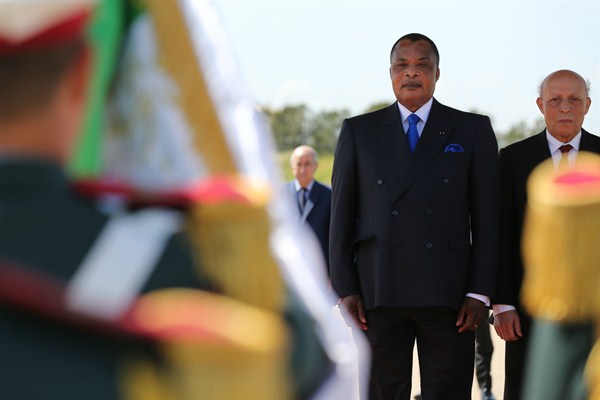For well over a year, information coming out of the Republic of Congo’s southeastern Pool region, though limited, has pointed to a brutal armed conflict with grave humanitarian consequences. In its crackdown on the Ntsiloulou rebel group, also known as the “Ninjas,” the government of President Denis Sassou Nguesso has been accused of carrying out torture, mass evictions, arbitrary arrests and even aerial bombardments against civilians. Grisly violence has also been attributed to the rebels, including attacks on rail lines connecting the region to the rest of the country.
The conflict in Pool started immediately after Sassou Nguesso was named the winner of the presidential election of March 2016, which gave him a new five-year term. The president has ruled Congo since 1979, with the exception of a five-year stretch in the 1990s following an election defeat. Though the constitution stipulated that his previous term should have been his last, Sassou Nguesso, 74, organized a controversial referendum in 2015 that altered the presidential term limit and did away with an age limit, allowing him to run again.
Following the announcement of the 2016 election results, amid opposition protests, the government blamed attacks on government buildings in the Makelekele district of Brazzaville, the capital, on the Ntsiloulou rebels, who had been dormant for years. The rebels’ leader, Frederic Bintsamou—who is also known by the alias Pastor Ntumi—is based in Pool, which is why the government’s reprisal campaign has been concentrated there. The remote location has meant the fighting has unfolded in near-total obscurity. “We knew that soldiers were getting killed because caskets were coming back to Brazzaville,” says Fonteh Akum, a senior researcher with the Institute for Security Studies in South Africa, who estimates that the army has lost around 120 soldiers. “We knew that people were being displaced as a result of the war. But no one actually knows the way the war was being prosecuted by state authorities.”

